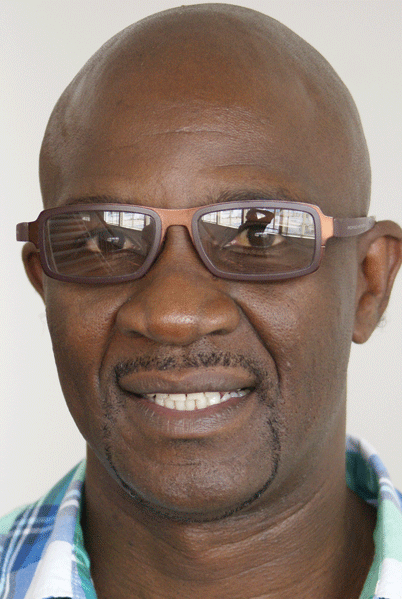
ON September 25 2011, king Abdullah bin Abdulaziz the ageing Saudi Arabia ruler gave a remarkable speech to the formal advisory body(Majlis Al Shura) to the Saudi monarch in Riyadh.
Beginning in 2013, the King said women would be allowed to serve on the 150-member body and beginning in 2015 they would be permitted to vote and run for office in municipal council elections.
To most outside observers, these moves were hardly worth noting. In 2011 popular revolts were topping autocratic regimes across the Middle East, even fellow monarchies like Morocco and Jordan were amending or changing their constitutions to show they would be more accountable to the people.
By contrast, the Saudi king speech conceded no new authority to the Majlis Al Shura an unelected body with limited powers of consultation only and Saudis have shown little interest in the largely symbolic local councils, only half of whose members are elected.
Moreover Abdullah’s innovations such as they were, could only happen now. The 2011 municipal elections which took place a few days after the speech were as in the past, open to men only.
In a country whose only written charter asserts the Koran as its basic law and in which women have few legal rights, let alone the right to vote, the announcement struck many as revolutionary, Liberal Saudis and women activists called the decision “historic”, citing it as further proof that their 90-year-old monarch was a “reformer” for their part, members of the government rushed to reassure the country’s powerful Ulama the religious leadership which adheres to the puritanical branch of Hanbali Islam also known as the Wahhabism that the new women members of the Shura would not mix with men.
The king himself in making the announcement, carefully noted that since the time of the prophet, the “Muslim woman has had valid opinions and sound advise that should not be regarded as marginal”.
Even prominent Saudi clerics suggested that the decree did not have religious backing and two days later, as if to ascertain their continuing writ, a court in Seddah sentenced a woman to ten lashes for driving a car.
- Chamisa under fire over US$120K donation
- Mavhunga puts DeMbare into Chibuku quarterfinals
- Pension funds bet on Cabora Bassa oilfields
- Councils defy govt fire tender directive
Keep Reading
Among the many enigmas about the increasingly elderly group of brothers who have ruled Saudi Arabia since 1953, the year in which their father Abdul Aziz, the country’s modern founder died, is how they have continually evaded the forces of change.
Despite Saudi control of the largest petroleum reserves in the world, decades of rapid population growth have reduced per capita income to a fraction of that of smaller Persian Gulf neighbours, with three quarters of its 28 million population being under the age of thirty, Saudi Arabia faces many of the social same problems as Egypt and Yemen.
By some estimates, nearly 40% of the Saudis between the ages of twenty and twenty four are unemployed and quite apart from Al-Queda there is a long and troubled history of directionless young men drawn to radicalism.
The country suffers from a housing crisis and chronic inflation, there have been recurring bouts of domestic terrorism, the outskirts of Riyadh and Jeddah are plagued by poverty, drugs and street violence, problems that are not acknowledged to exist in the land of the Two Holy Mosques.
Saudi Arabia seems to posses of the attributes that have led to border revolts in neighbouring countries. There is a restive and well organised Shia authority minority in the country’s Eastern Province who have engaged in a series of street protests since 2011.
Young men and women all over the country are exceptionally well connected by social media, a higher proportion of the Saudis now use Twitter and You Tube than almost any other nation in the world.
This has made it easier to expose the alleged corruption by members of the royal family, as one anonymous Twitter user Mujtahidd with apparent inside sources has been doing (a Mujtahidd is a scholar with independent authority to interpret Islamic law)
The burgeoning political blogosphere, the growing population of young professionals with foreign degrees who were bridled by the Saudi traditions or even its leading clerics some of whom not only issue opinions at odds with re regime have become powerful voices of reform.
After spending years in jail for example former radical preacher Salman al-Awda decries the inability of the leadership to connect with youth and tweets to nearly two million followers about the need for change.
During the 1960s and 1970s, exploiting its unprecedented oil wealth, Saudi Arabia was able to build with great speed and technologically advanced economically self-sufficient welfare state.
This radical transformation was masterminded by the royal family itself (king Faisal who after a power struggle succeeded Saud in 1964) and expressly besieged to strengthen its rule and neutralise any pressure for political reform.
Described as defensive “change” this strategy involved creating vast central administration that could co-opt competing factions of society even as it broke down traditional tribal loyalties.
Crucial to the state were the assertion of the monarch’s Islamic roots and the consequent need to separate economic development from political and religious institutions which could not be tempered with and to embrace of an ideal of broad consensus that served to isolate and marginalise proponents of more radical reforms.
For decades, the parched kingdom has flourished on the promise that its leaders could turn oil into water and provide comforts without giving up the country’s ultra-traditional religion and culture.
With the price of oil decreasing, Saudis may start to believe that the promise is no longer being kept and the monarch’s future may be precarious indeed.










